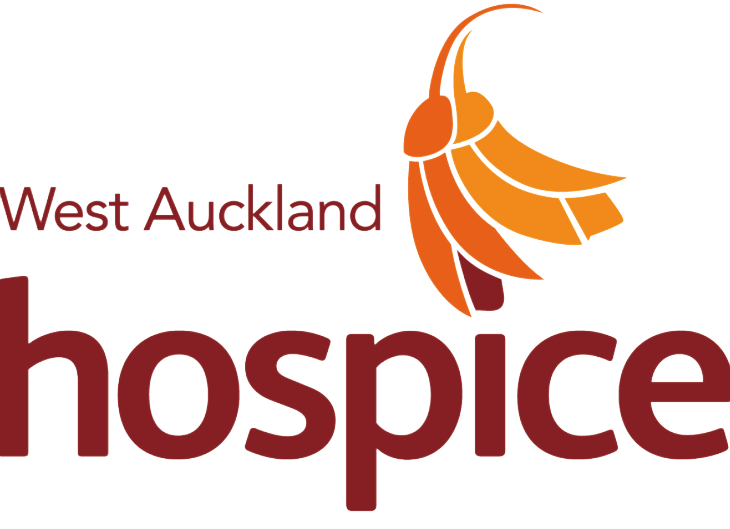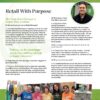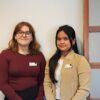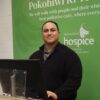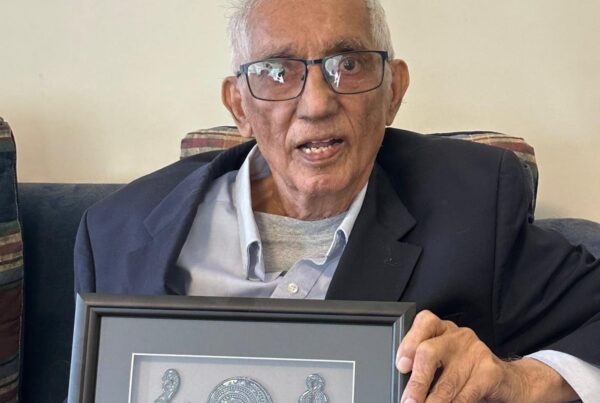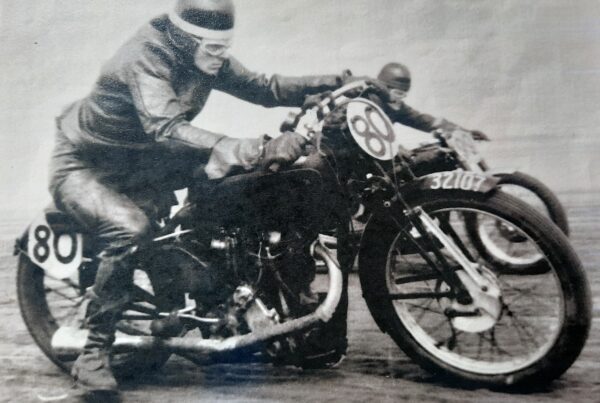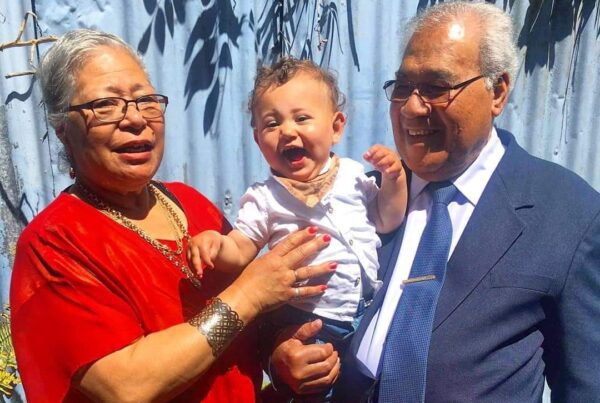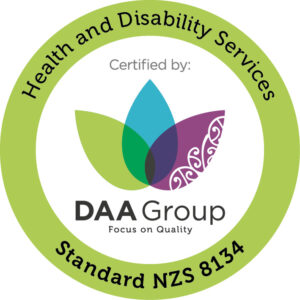Aron and Angela first met when they were teenagers working at Farmers at the old Henderson Square. And although they occasionally bumped into each other during the years that followed, it wasn’t until many years later at a Mangawhai Tavern concert when sparks flew. They instantly recognised each other in the crowded pub and from that minute on that was it. “We spent the whole concert together, we danced together, had our first kiss, and after we left we texted each other until three o’clock in the morning,” smiles Aron.
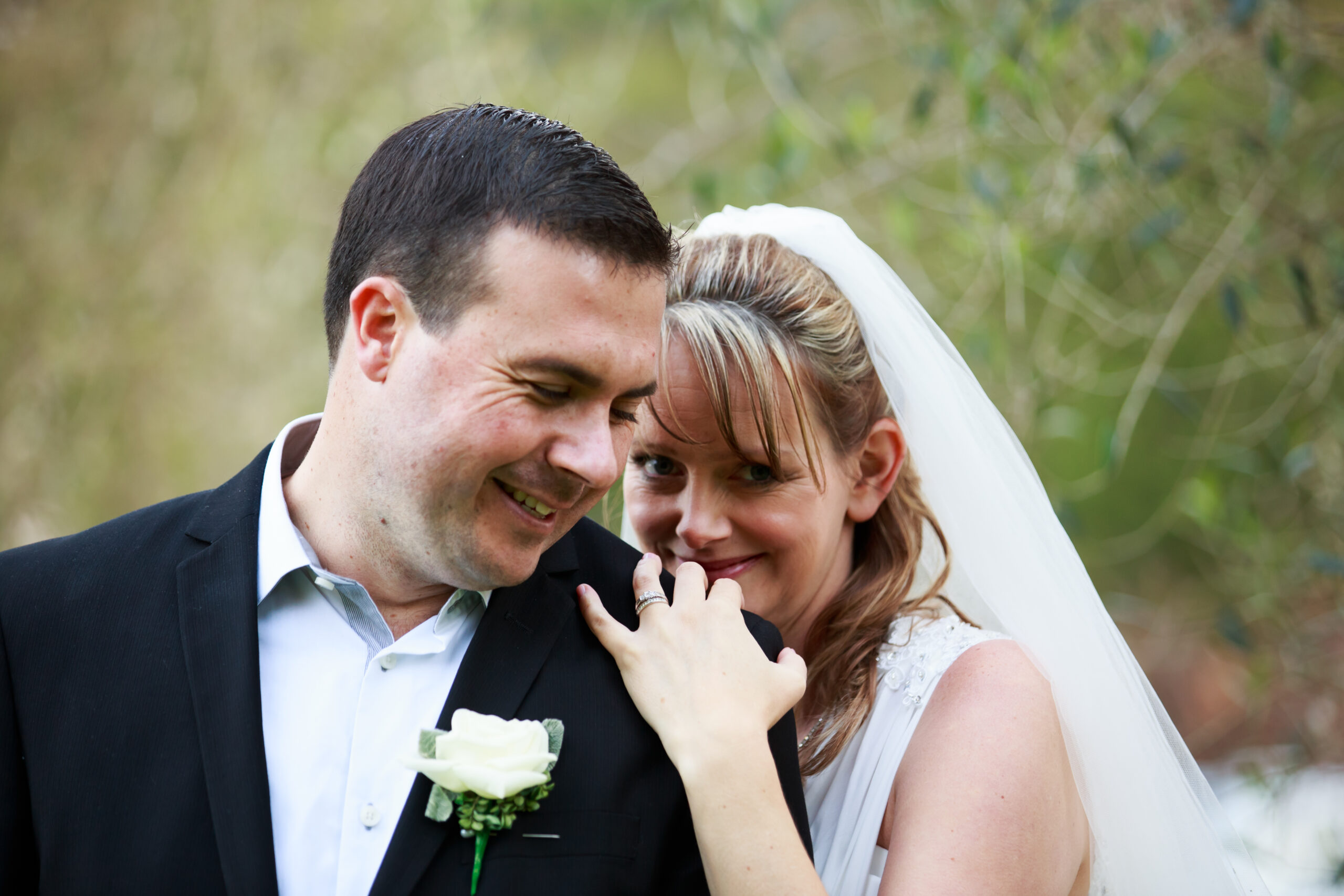
The pair discovered that they lived only a kilometre away from each other in West Auckland, and, having kids from previous relationships, had almost identical family circumstances. “We went on one date, and then a couple more dates,” says Aron. “I remember someone saying to me: ‘when you know, you know’. And it got to the point after our third date that I just knew this was it. And from then we were never apart.”
Within six months they had moved in together and it was the easiest blending of families. “I proposed to her on Christmas Day on Ruakaka Beach in the middle of what felt like a sandstorm,” laughs Aron. “It was the most unromantic thing you’d seen in your life. I couldn’t even get down on one knee because I would have disappeared into the sand!” They got married, had a daughter and bought their first house together. “Everything just felt right: this is it, this is us,” says Aron.
Twelve years following that meeting in Mangawhai, Angela developed a tremor in her hand. She eventually went to the doctor who referred her to a neurologist for an appointment that was three months away. But the tremor quickly got worse and one morning she woke with one side of her mouth drooping. Fearing a stroke, the couple spent the day at Waitakere Hospital undergoing a barrage of scans and tests. At the end of the day they were just waiting on scan results before being able to head home. “I’ll never forget that moment when the doctor walked back in,” says Aron. “He knelt down next to the bed and I knew then that we were in real trouble.” The doctor explained that the scan had revealed a mass in Angela’s brain – and their entire world changed.
“Even when I was leaving the hospital that night, I was still thinking to myself that she was going to be ok,” explains Aron. “I was under no illusions that it wasn’t going to be hard, and that she would need treatment and time off work, but I truly believed she would be ok.”
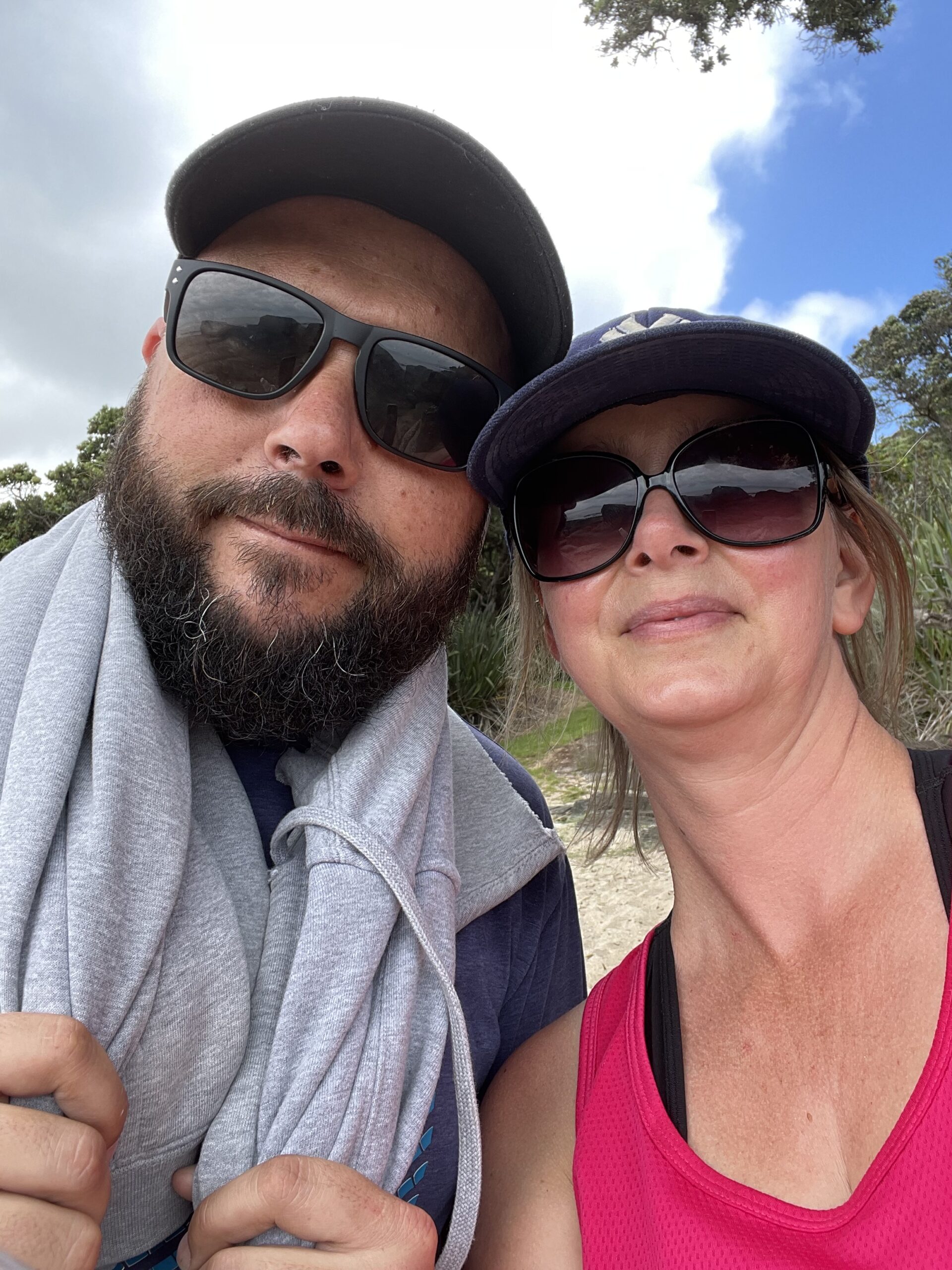
But a biopsy revealed the worst possible news – there was a 2cm mass in the middle of Angela’s brain making surgery impossible. They were told she had 18 – 24 months to live with treatment. However, the oncologist delivered yet another blow when he revised her prognosis to 15 months with treatment. Despite immediately commencing a treatment regime of chemo and radiation, heartbreakingly, Angela’s condition deteriorated rapidly. That was when the neurology nurse suggested they contact Hospice. “My very limited knowledge of Hospice at the time was that it was where you went to die,” explains Aron. “So my immediate reaction was no way – she’s not there yet! But the nurse told us there was so much more that Hospice does.” A referral was made and it ‘opened up this world we had no idea about.’
Aron immediately became Angela’s fulltime carer. “She very quickly went from being a strong, independent woman who could do anything to needing help to do almost everything,” he says. “And I would have cared for her a million times over, but I couldn’t have done it without Hospice.”
Aron says the effect of what Hospice did was huge because it allowed them to care for Angela at home. “She didn’t have to go to hospital or an in-patient unit because we could look after her,” he says. “We had nurses, physios, therapists, whatever we needed. From coordinating equipment to liaising with District Nurses to organising extra carers – Hospice did all that, and without them we would have had no idea.” The team showed Aron how to look after Angela – everything from administering medication to how to use a slide sheet, from giving sponge baths to equipping them with essential supplies.
Aron made use of the 24-hour phone support line several times, and was surprised and relieved by the consistently high level of care and support. “Regardless of who we spoke to, they made us feel like we were the only people who mattered, and they all knew our story so I never had to explain it,” he says.
“The two massive things for me were Angela’s safety and dignity, and with Hospice that was never in question,” says Aron. “The Massage Therapist came a week before she passed, and I remember the respect she showed Angela and how she made her feel like she was her only priority. And our nurse Charlie became part of our family – you could actually see Angela relax when she walked in the room. And Charlie took the time to see how I was feeling too. Realistically she was there to make sure Angela was medically ok, but that wasn’t where her job stopped – she was there for all of us. She gave us that reassurance that what we were doing was the right thing. But she was also real and honest so we knew what to expect and it wasn’t a shock.”
Aron recalls how that respect for Angela’s dignity, and truly seeing her for the person she was, never wavered. “The day that Angela passed, the Hospice Doctor came to do the final checks and she talked to Angela like she was still with us, telling her what was happening. It wasn’t at all what I was expecting and that level of respect was just mind-blowing.”
Six months later, Hospice continues to support Aron and his family through the grief process with regular grief counselling and arts therapy sessions, which he says are extremely helpful.
Inspired to give back to Hospice, Aron has now signed up to run the 2024 Barfoot & Thompson Auckland Marathon to fundraise for Hospice. “I’ve thought about doing this kind of thing before but never stuck with it,” he explains. “So I knew I needed a reason to do it. I want to do it for Angela and for Hospice. We owe Hospice so much – without them, I don’t know what would have happened. Angela would have ended up in hospital because I wouldn’t have been able to look after her, or the kids. If I can run 21km and raise some money to help then that just makes sense. After what we’ve already been through, and seeing what the Hospice team does every day, running a half-marathon is the very least I can do.”
It’s been a gratifying surprise to Aron that friends and family have also signed up to join his marathon team ‘Running for Angela’. Currently standing at a team of seven, donations have already started to come in. “It’s been amazing to see donations from people we don’t even know – they just want to support Hospice too. I think they have been where we’ve been so we have that shared experience,” he says.
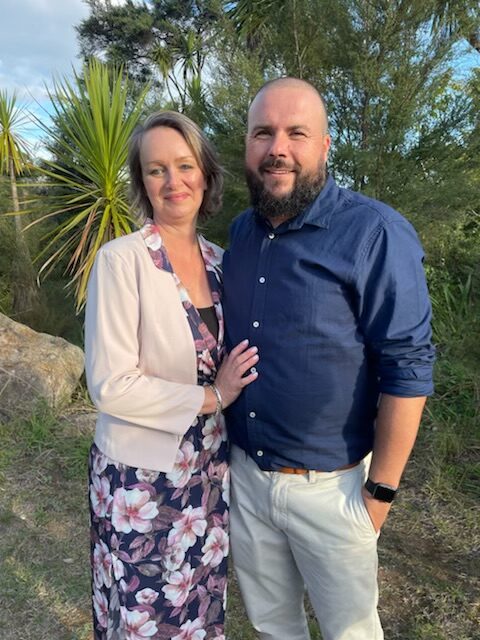
He’s organised t-shirts for the team promoting their marathon fundraising page, complete with QR codes to make it quick and easy to donate.
“You guys at Hospice do so much and it means so much!” says Aron. “The effect that you have on people is indescribable. We could raise a million dollars and it wouldn’t be enough to show our gratitude.”
To support Running for Angela in the 2024 Barfoot & Thompson Auckland Marathon please click here.
